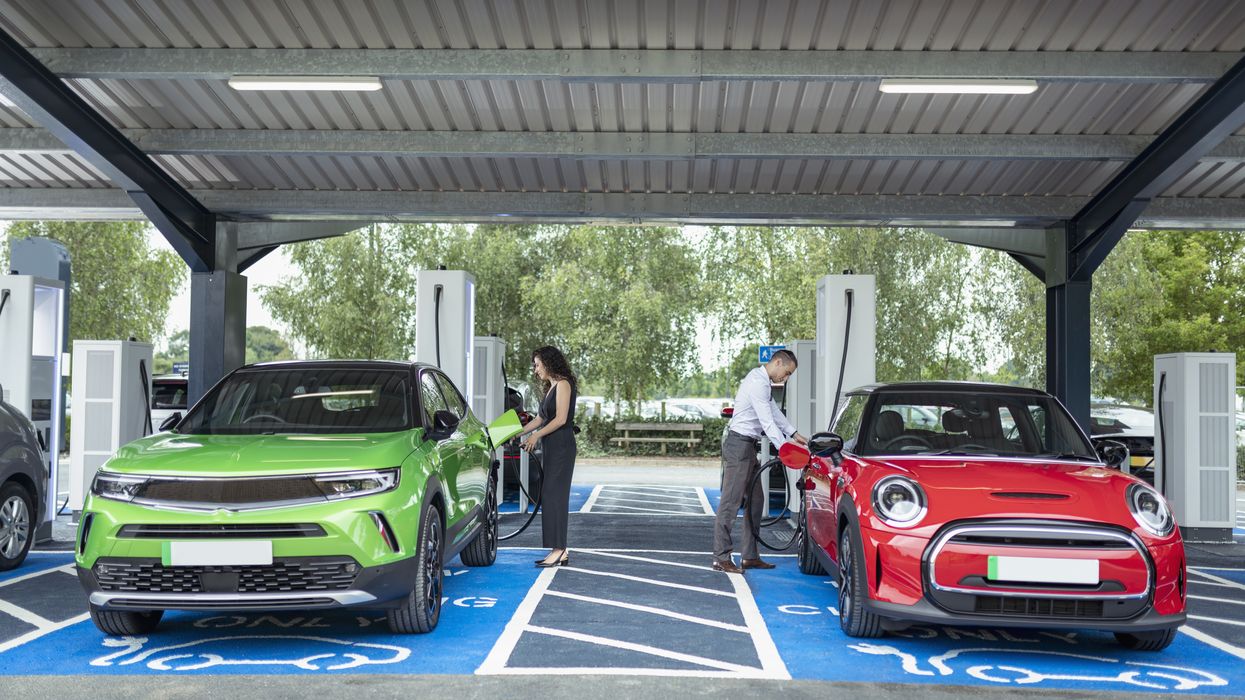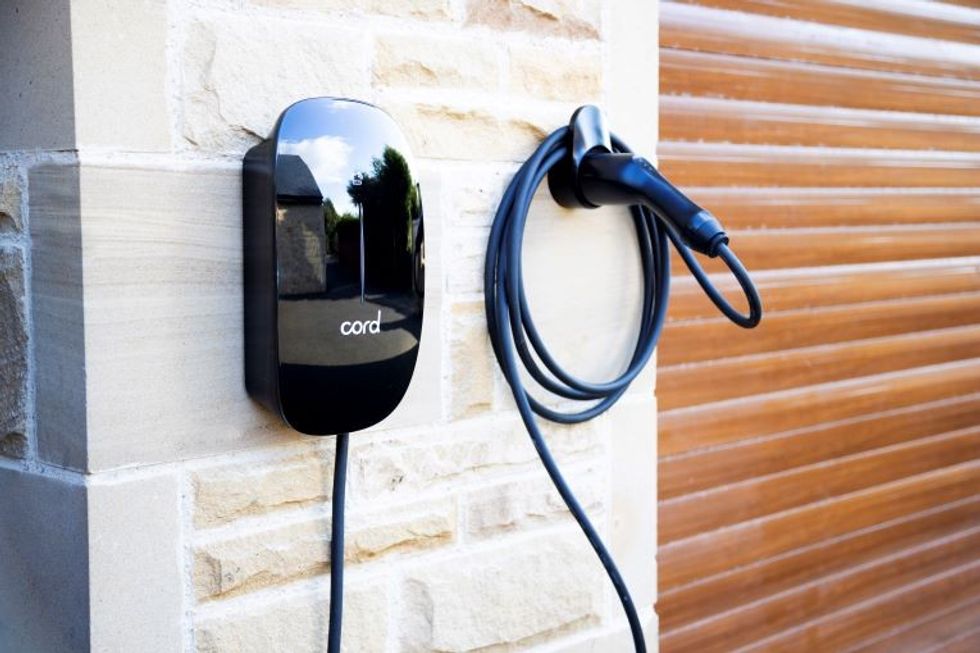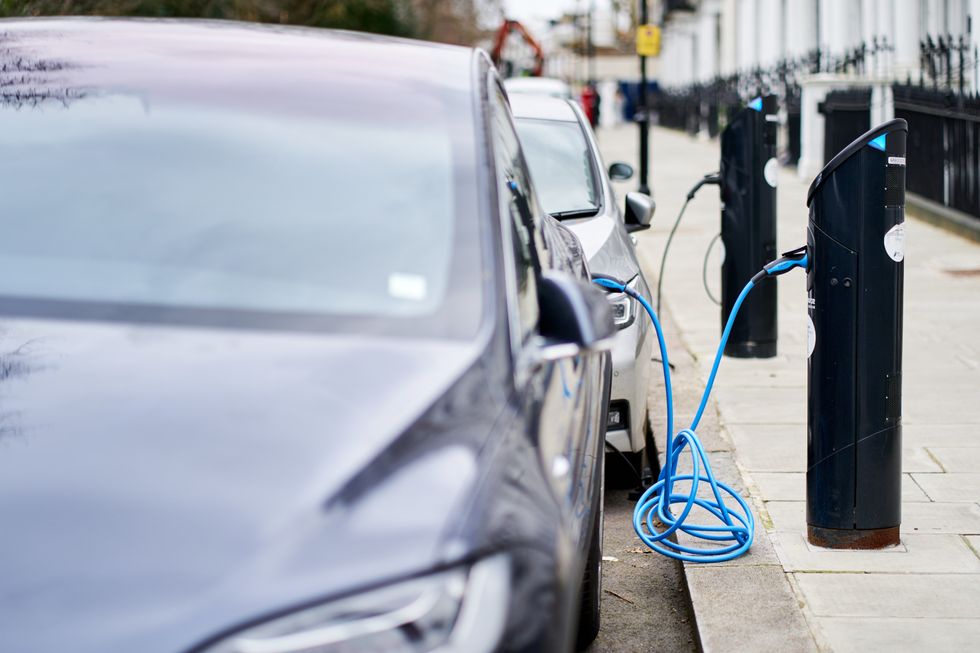Electric car chargers need to roll out faster by cutting through 'bureaucratic' hurdles, says EV chief

40 per cent of EV drivers do not have household charging points
| GETTYGraeme Wintle, Director of EV charging consultancy Versinetic, spoke to GB News about the need to accelerate the spread of electric car chargers around the country
Don't Miss
Most Read
As the UK sees in a new Labour Government, it's time for a critical reassessment of our electric vehicle policies.
Despite a notable increase in the EV charging network, with public charge points more than doubling in the past two years and a new installation every 25 minutes last quarter according to ChargeUK, much remains to be done to the country’s ambitious future targets.
This expansion in infrastructure is a positive sign, showing that the availability of public charge points is now surpassing the influx of new EVs. However, to achieve our 2030 goals, the new administration must address several urgent issues.
These measures involve cutting through bureaucratic hurdles related to grid capacity, planning, and permitting processes; enhancing the affordability and accessibility of EV ownership and charging; and simplifying the deployment of public subsidies.
Do you have a story you'd like to share? Get in touch by emailing motoring@gbnews.uk

The car industry has called for stronger EV incentives
| CORDThe current pace of charger deployment is not meeting the needs of all EV users, particularly those outside urban areas.
This concern is echoed by the Society of Motor Manufacturers and Traders, which is calling for stronger Government incentives, including a significant VAT reduction on public charging points to boost the transition to electric vehicles.
To overcome these challenges, the Government could implement several key policies to develop a more robust EV infrastructure.
These measures should include major investments in a nationwide network of charging stations, subsidies for charger installations at homes and workplaces, and the standardisation of charging protocols to enhance user experience.
The introduction of a Universal EV Charging Payment app could also simplify the charging process, reducing the hassle associated with using multiple proprietary networks.
Another forward-thinking strategy under consideration is the integration of parking facilities with charging stations and vehicle-to-grid capabilities.
Such integrated solutions could dramatically alleviate urban congestion and improve energy resilience, aligning with sustainable urban planning objectives.
Maintaining our rapidly growing EV infrastructure is no small task, and it demands strong national support systems similar to what organisations like the AA or RAC offer for traditional vehicles.
Besides, we can't ignore the 40 per cent of UK households without off-street parking. Rolling out clever solutions like street-level and communal charging stations is crucial to make electric vehicles a viable option for more people.
Technology has to be at the heart of the EV infrastructure rollout nationally, and Versinetic is spearheading the rapid deployment of EV chargers with its new integrated EVerest software stack, housed within its robust Charging Blox framework.
EVerest is an open-source solution set to transform the EV charging sector. This integration allows for the swift launch of advanced, feature-rich charging stations without the burden of long-term subscriptions.
Flexible and adaptable, Everest’s modular design makes it simpler for charging station manufacturers to customise and extend the software for their specific needs.
LATEST DEVELOPMENTS:

A new EV charger is installed every 25 minutes on average
| PAAs we navigate this transformative period, the integration of comprehensive, forward-thinking policies by our new Government will be crucial.
By endorsing incentives and subsidies, simplifying technologies used in charger manufacture and implementing progressive transportation policies, the UK is poised to rectify the current deficiencies in EV infrastructure development and establish a foundation for the growth of the electric vehicle market, steering the country towards a cleaner, more sustainable future.
Graeme Wintle, Director of EV charging consultancy Versinetic










